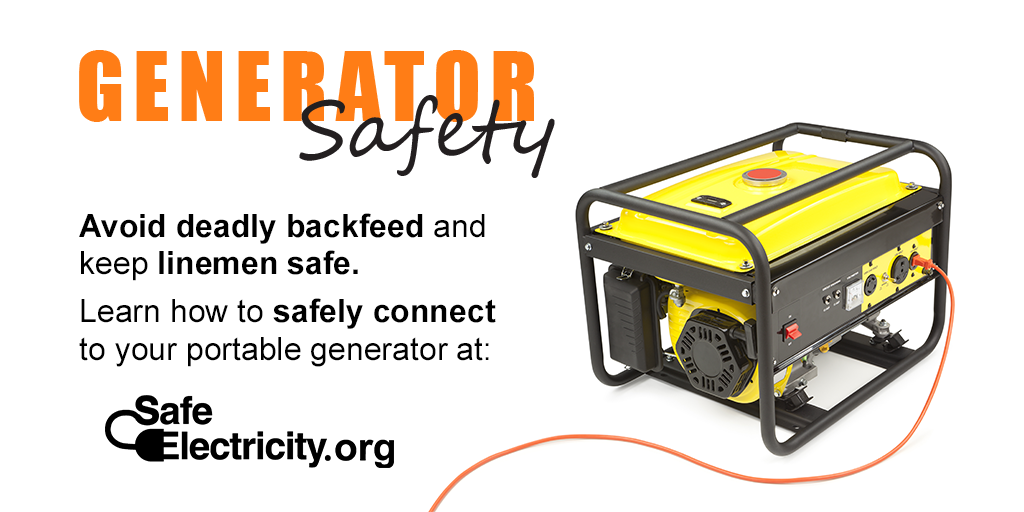Portable generators can be life savers when used properly. Here's a list of things to consider when you plan to use one.
1. Make certain the generator is on an isolated circuit. If connected to your home's wiring, it could back-feed and create a dangerous situation for linemen working on power lines.
2. Read the manufacturer's instructions and learn how to operate and turn off your generator before you need to use it.
3. Make sure the extension cord you use is in good shape and rated for a load greater than the total wattage of all connected appliances and other devices (125 x amps = watts).
4. Keep the generator dry, and do not operate it indoors or in an enclosed or partially enclosed area. Generators quickly can produce high levels of deadly carbon monoxide gas.
5. Keep children and pets away from the generator when it is running.
6. Give your generator several breaks during the day. Most portable generators are not designed to
run 24/7.
7. Always switch the engine off and allow it to cool before adding fuel in a well ventilated area.
8. Turn off the generator's circuit breaker before starting, so the load does not draw current until the generator is running smoothly. Turn off the breaker before stopping the generator.
9. Test the ground fault circuit interrupter (GFCI) on the generator every time you fire up the engine.

Below is a short video explaining the potential dangers when generator safety is not considered.

